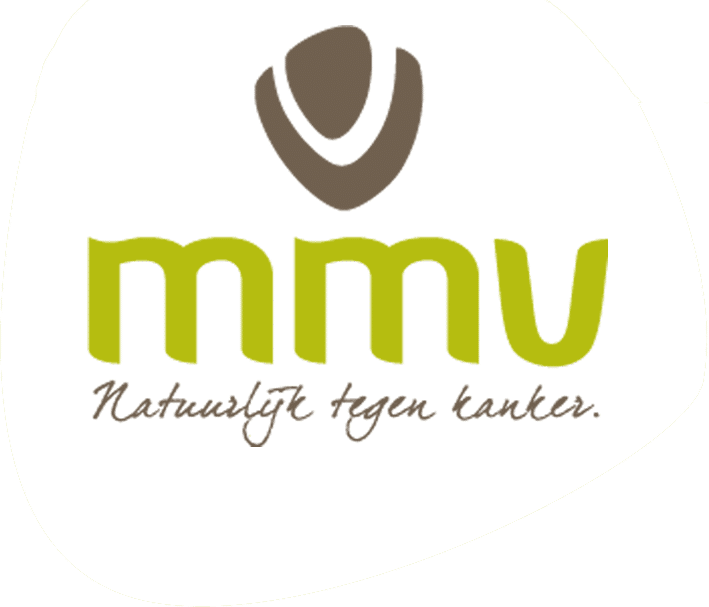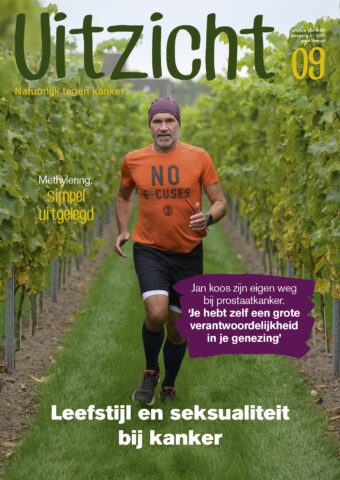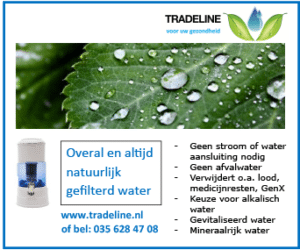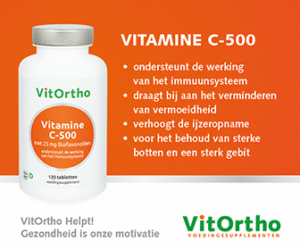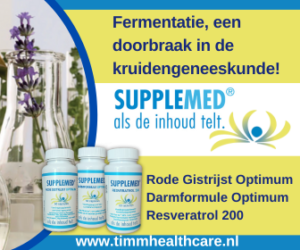‘Grote studie bewijst; wie onvoldoende water drinkt, veroudert (en sterft) sneller’ (1). En: ‘How staying properly hydrated may help you live healthier, longer’ (2). Deze mediakoppen in januari baseren zich op onderzoek in een dochter van het toonaangevende blad ‘The Lancet’, maar wie de studie napluist, trekt andere conclusies.
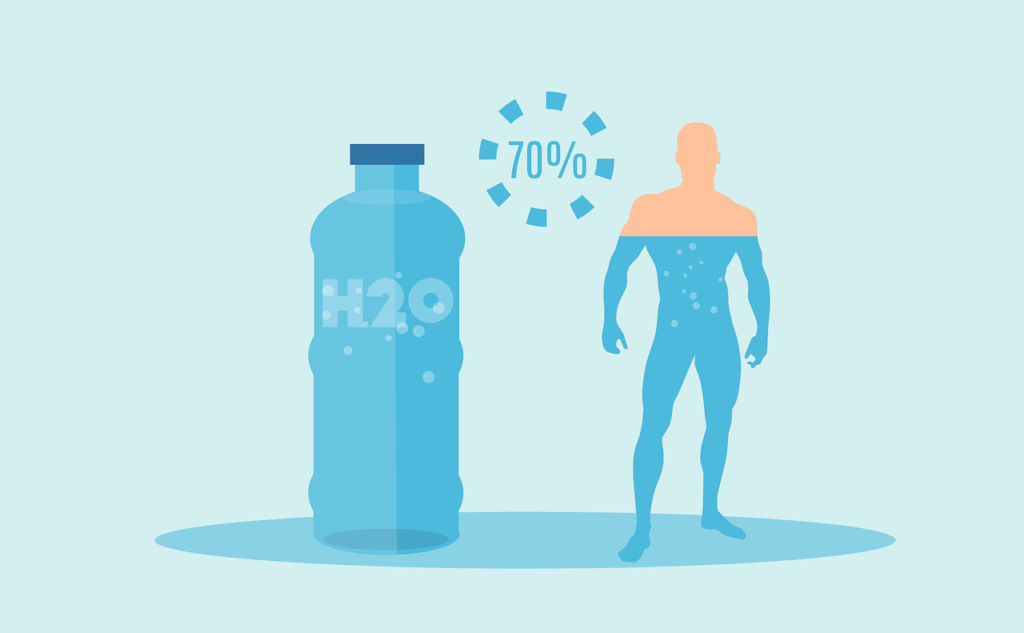
‘Hoog-normaal serumnatrium op middelbare leeftijd als risicofactor voor versnelde biologische veroudering, chronische ziekten en voortijdige sterfte’, is de titel van de epidemiologische studie (3). Data waren afkomstig van 11.255 Amerikanen van 45 tot 66 jaar, die werden gevolgd. Een hoog-normaal natriumgehalte in het bloed aan de start associeerde na 25 jaar met een hoop ellende. Mensen van wie het ‘natrium’ op middelbare leeftijd hoger is dan 142 mmol/L, ‘hebben een verhoogd risico om biologisch ouder te zijn, chronische ziekten te ontwikkelen en op jongere leeftijd te overlijden’, aldus de samenvatting (3).
Taalkundig niet fraai, en ook qua bewijskracht niet groots. Op basis van uitsluitend epidemiologisch onderzoek is zo’n conclusie a priori niet te trekken. Immers, als de ooievaar terugkomt uit het Zuiden worden naar zeggen ook meer kinderen geboren: er is een ’associatie’ (verband), maar dat is geen synoniem van ‘causaliteit’ (oorzakelijk verband) (6,7). Om hun punt kracht bij te zetten voeren de onderzoekers een eerdere muizenstudie aan. Deze bleek – heb het even opgezocht – van dezelfde onderzoekers (4,5). Levenslang gaven ze die muizen zo weinig vocht dat het op de foto’s leek alsof ze hijgend uit de Sahara waren gekropen (5). ‘Interventiestudies zouden het verband tussen vochthuishouding en veroudering kunnen bevestigen’ (3). De vraag is hoe: mensenbaby’s blootstellen aan een levenslang Sahara-experiment?
Dit fenomeen is de grote valkuil bij het inschatten van ‘bewijskracht’ waarmee vooral de media en het lekenpubliek de mist ingaan. Een Belgisch blad nam het advies blindelings over: ‘Artsen kunnen het natriumgehalte in de gaten houden en op basis daarvan adviseren om meer vocht in te nemen’ (2a).
Normaalgesproken dient een hoog natriumgehalte als maat voor uitdroging te worden bevestigd door andere aanwijzingen van ‘ingedikt’ bloed, zoals een hogere eiwitconcentratie of een geconcentreerde urine (8). Maar die data waren er niet.
In een eerdere, veel grotere (231.545 personen), studie van andere auteurs linkte een hoog-normaal natriumgehalte alleen aan hart- en vaatziekten bij mensen met een hoge bloeddruk (10). Waarschijnlijk schuilt daarin de ware verklaring voor de associatie. In de Lancet studie had tachtig procent van de deelnemers na 25 jaar een hoge bloeddruk en dertig procent diabetes mellitus type 2. Een beeld dat duidt op het ‘metabool syndroom’: een combinatie van overgewicht, hoge bloeddruk, en een gestoorde glucose- en vetstofwisseling (11). In een dergelijke conditie houdt het lichaam natrium vast: je bent dan ‘zoutgevoelig’ (12-23).
Het metabool syndroom is een voorbode van alle ellende die in de studie wordt genoemd. Het wordt niet voorkómen of genezen door het drinken van water, maar door een gezonde leefstijl (24-26). Waaronder: waterdrinken en check daarvoor vooral de kleur van uw urine (27). En laat vanaf 35 jaar een bloedglucosetest doen op nuchtere maag, zoals de Amerikaanse diabetesvereniging adviseert (3a,b). Dat zet beslist meer zoden aan de dijk dan een onzinnige jaarlijkse natrium-checkup!
5. Allen MD, Springer DA, Burg MB, Boehm M, Dmitrieva NI. Suboptimal hydration remodels metabolism, promotes degenerative diseases, and shortens life. JCI Insight. 2019 Sep 5;4(17):e130949. doi: 10.1172/jci.insight.130949. PMID: 31484829; PMCID: PMC6777918.
https://pubmed.ncbi.nlm.nih.gov/31484829/
1. Vandenweghe H. Grote studie bewijst: wie onvoldoende water drinkt, veroudert (en sterft) sneller. Maandag 9 januari 2023 om 12:51; accessed 13 januari 2023
https://www.nieuwsblad.be/cnt/dmf20230109_94288669
2. Berman R. Upham B. How staying properly hydrated may help you live healthier, longer. MedicalNewsToday 6 January 2023, accessed 13 January 2023
2a. Peters M. Klopt het dat je sneller veroudert en sterft als je te weinig water drinkt? Nieuwe studie geeft antwoord. HLN-wetenschap. 12-01-2023, 11:48, accessed 16 January 2023
3. Dmitrieva NI, Gagarin A, Liu D, Wu CO, Boehm M. Middle-age high normal serum sodium as a risk factor for accelerated biological aging, chronic diseases, and premature mortality. EBioMedicine. 2022 Dec 13:104404. doi: 10.1016/j.ebiom.2022.104404. Epub ahead of print. PMID: 36599719.
https://pubmed.ncbi.nlm.nih.gov/36599719/
3a. The ADA’s 2022 Standards of Medical Care in Diabetes Update. National Institute of Health (NIH). Feb. 23, 2022, accessed 16 January 2023.
3b. American Diabetes Association Professional Practice Committee. Summary of Revisions: Standards of Medical Care in Diabetes-2022. Diabetes Care. 2022 Jan 1;45(Suppl 1):S4-S7. doi: 10.2337/dc22-Srev. PMID: 34964881.
https://pubmed.ncbi.nlm.nih.gov/34964881/
4. Dmitrieva NI, Burg MB. Elevated sodium and dehydration stimulate inflammatory signaling in endothelial cells and promote atherosclerosis. PLoS One. 2015 Jun 4;10(6):e0128870. doi: 10.1371/journal.pone.0128870. PMID: 26042828; PMCID: PMC4456159.
https://pubmed.ncbi.nlm.nih.gov/26042828/
5. Allen MD, Springer DA, Burg MB, Boehm M, Dmitrieva NI. Suboptimal hydration remodels metabolism, promotes degenerative diseases, and shortens life. JCI Insight. 2019 Sep 5;4(17):e130949. doi: 10.1172/jci.insight.130949. PMID: 31484829; PMCID: PMC6777918.
https://pubmed.ncbi.nlm.nih.gov/31484829/
6. HILL AB. THE ENVIRONMENT AND DISEASE: ASSOCIATION OR CAUSATION? Proc R Soc Med. 1965 May;58(5):295-300. PMID: 14283879; PMCID: PMC1898525.
https://pubmed.ncbi.nlm.nih.gov/14283879/
7. Wakeford R. Association and causation in epidemiology – half a century since the publication of Bradford Hill’s interpretational guidance. J R Soc Med. 2015 Jan;108(1):4-6. doi: 10.1177/0141076814562713. PMID: 25572986; PMCID: PMC4291331.
https://pubmed.ncbi.nlm.nih.gov/25572986/
8. Masood Ashraf, M., and Rustam Rea. “Effect of dehydration on blood tests.” Practical Diabetes 34.5 (2017).
9. Osmolaliteit. Nederlandse Vereniging voor Klinische Chemie en Laboratoriumgeneeskunde. Accessed 13 januari 2023.
https://www.nvkc.nl/zoek-een-test/?id=266
10. Cole NI, Suckling RJ, Swift PA, He FJ, MacGregor GA, Hinton W, van Vlymen J, Hayward N, Jones S, de Lusignan S. The association between serum sodium concentration, hypertension and primary cardiovascular events: a retrospective cohort study. J Hum Hypertens. 2019 Jan;33(1):69-77. doi: 10.1038/s41371-018-0115-5. Epub 2018 Sep 24. PMID: 30250270.
https://pubmed.ncbi.nlm.nih.gov/30250270/
11. Reaven GM. The metabolic syndrome: requiescat in pace. Clin Chem. 2005 Jun;51(6):931-8. doi: 10.1373/clinchem.2005.048611. Epub 2005 Mar 3. PMID: 15746300.
https://pubmed.ncbi.nlm.nih.gov/15746300/
12. Krug AW, Ehrhart-Bornstein M. Aldosterone and metabolic syndrome: is increased aldosterone in metabolic syndrome patients an additional risk factor? Hypertension. 2008 May;51(5):1252-8. doi: 10.1161/HYPERTENSIONAHA.107.109439. Epub 2008 Mar 17. PMID: 18347227.
https://pubmed.ncbi.nlm.nih.gov/18347227/
13. Chen J, Gu D, Huang J, Rao DC, Jaquish CE, Hixson JE, Chen CS, Chen J, Lu F, Hu D, Rice T, Kelly TN, Hamm LL, Whelton PK, He J; GenSalt Collaborative Research Group. Metabolic syndrome and salt sensitivity of blood pressure in non-diabetic people in China: a dietary intervention study. Lancet. 2009 Mar 7;373(9666):829-35. doi: 10.1016/S0140-6736(09)60144-6. Epub 2009 Feb 14. PMID: 19223069; PMCID: PMC2822441.
https://www.ncbi.nlm.nih.gov/pmc/articles/PMC2822441/
14. Fujita T. Mineralocorticoid receptors, salt-sensitive hypertension, and metabolic syndrome. Hypertension. 2010 Apr;55(4):813-8. doi: 10.1161/HYPERTENSIONAHA.109.149062. Epub 2010 Feb 22. PMID: 20176994.
https://pubmed.ncbi.nlm.nih.gov/20176994/
15. Yatabe MS, Yatabe J, Yoneda M, Watanabe T, Otsuki M, Felder RA, Jose PA, Sanada H. Salt sensitivity is associated with insulin resistance, sympathetic overactivity, and decreased suppression of circulating renin activity in lean patients with essential hypertension. Am J Clin Nutr. 2010 Jul;92(1):77-82. doi: 10.3945/ajcn.2009.29028. Epub 2010 May 5. Erratum in: Am J Clin Nutr. 2010 Oct;92(4):1002. PMID: 20444953.
https://pubmed.ncbi.nlm.nih.gov/20444953/
16. Briet M, Schiffrin EL. The role of aldosterone in the metabolic syndrome. Curr Hypertens Rep. 2011 Apr;13(2):163-72. doi: 10.1007/s11906-011-0182-2. PMID: 21279740.
17. Ando K, Fujita T. Pathophysiology of salt sensitivity hypertension. Ann Med. 2012 Jun;44 Suppl 1:S119-26. doi: 10.3109/07853890.2012.671538. PMID: 22713140.
https://pubmed.ncbi.nlm.nih.gov/22713140/
18. Rust P, Ekmekcioglu C. Impact of Salt Intake on the Pathogenesis and Treatment of Hypertension. Adv Exp Med Biol. 2017;956:61-84. doi: 10.1007/5584_2016_147. PMID: 27757935.
https://pubmed.ncbi.nlm.nih.gov/27757935/
19. Kimura T, Hashimoto Y, Tanaka M, Asano M, Yamazaki M, Oda Y, Toda H, Marunaka Y, Nakamura N, Fukui M. Sodium-chloride Difference and Metabolic Syndrome: A Population-based Large-scale Cohort Study. Intern Med. 2016;55(21):3085-3090. doi: 10.2169/internalmedicine.55.7000. Epub 2016 Nov 1. PMID: 27803399; PMCID: PMC5140854.
https://pubmed.ncbi.nlm.nih.gov/27803399/
20. Kawarazaki W, Fujita T. The Role of Aldosterone in Obesity-Related Hypertension. Am J Hypertens. 2016 Apr;29(4):415-23. doi: 10.1093/ajh/hpw003. Epub 2016 Feb 28. PMID: 26927805; PMCID: PMC4886496.
https://pubmed.ncbi.nlm.nih.gov/26927805/
21. Liu Y, Shi M, Dolan J, He J. Sodium sensitivity of blood pressure in Chinese populations. J Hum Hypertens. 2020 Feb;34(2):94-107. doi: 10.1038/s41371-018-0152-0. Epub 2019 Jan 10. PMID: 30631129; PMCID: PMC6698227.
https://pubmed.ncbi.nlm.nih.gov/30631129/
22. Ertuglu LA, Elijovich F, Laffer CL, Kirabo A. Salt-Sensitivity of Blood Pressure and Insulin Resistance. Front Physiol. 2021 Dec 13;12:793924. doi: 10.3389/fphys.2021.793924. PMID: 34966295; PMCID: PMC8711096.
https://pubmed.ncbi.nlm.nih.gov/34966295/
23. Hogas M, Statescu C, Padurariu M, Ciobica A, Bilha SC, Haisan A, Timofte D, Hogas S. Salt, Not Always a Cardiovascular Enemy? A Mini-Review and Modern Perspective. Medicina (Kaunas). 2022 Aug 29;58(9):1175. doi: 10.3390/medicina58091175. PMID: 36143852; PMCID: PMC9504547.
https://pubmed.ncbi.nlm.nih.gov/36143852/
24. Lean ME, Leslie WS, Barnes AC, Brosnahan N, Thom G, McCombie L, Peters C, Zhyzhneuskaya S, Al-Mrabeh A, Hollingsworth KG, Rodrigues AM, Rehackova L, Adamson AJ, Sniehotta FF, Mathers JC, Ross HM, McIlvenna Y, Stefanetti R, Trenell M, Welsh P, Kean S, Ford I, McConnachie A, Sattar N, Taylor R. Primary care-led weight management for remission of type 2 diabetes (DiRECT): an open-label, cluster-randomised trial. Lancet. 2018 Feb 10;391(10120):541-551. doi: 10.1016/S0140-6736(17)33102-1. Epub 2017 Dec 5. PMID: 29221645.
https://pubmed.ncbi.nlm.nih.gov/29221645/
25. Pot GK, Battjes-Fries MC, Patijn ON, van der Zijl N, Pijl H, Voshol P. Lifestyle medicine for type 2 diabetes: practice-based evidence for long-term efficacy of a multicomponent lifestyle intervention (Reverse Diabetes2 Now). BMJ Nutr Prev Health. 2020 Aug 18;3(2):188-195. doi: 10.1136/bmjnph-2020-000081. PMID: 33521528; PMCID: PMC7841830.
https://pubmed.ncbi.nlm.nih.gov/33521528/
26. de Hoogh IM, Oosterman JE, Otten W, Krijger AM, Berbée-Zadelaar S, Pasman WJ, van Ommen B, Pijl H, Wopereis S. The Effect of a Lifestyle Intervention on Type 2 Diabetes Pathophysiology and Remission: The Stevenshof Pilot Study. Nutrients. 2021 Jun 25;13(7):2193. doi: 10.3390/nu13072193. PMID: 34202194; PMCID: PMC8308398.
https://pubmed.ncbi.nlm.nih.gov/34202194/
27. Johnson RJ, García-Arroyo FE, Gonzaga-Sánchez G, Vélez-Orozco KA, Álvarez-Álvarez YQ, Aparicio-Trejo OE, Tapia E, Osorio-Alonso H, Andrés-Hernando A, Nakagawa T, Kuwabara M, Kanbay M, Lanaspa MA, Sánchez-Lozada LG. Current Hydration Habits: The Disregarded Factor for the Development of Renal and Cardiometabolic Diseases. Nutrients. 2022 May 15;14(10):2070. doi: 10.3390/nu14102070. PMID: 35631211; PMCID: PMC9145744.
MMV maakt wekelijks een selectie uit het nieuws over voeding en leefstijl in relatie tot kanker en andere medische condities.
Inschrijven nieuwsbrief
